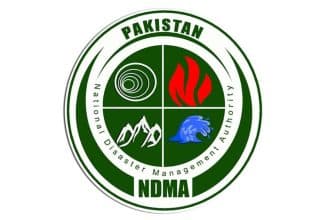London: Globally, one third fewer aid workers were killed, wounded or kidnapped in 2014 than the all-time high of 460 in 2013, because fewer were deployed to dangerous regions, according to the group Humanitarian Outcomes.
Last year 120 aid workers were killed, 88 wounded and 121 kidnapped, with Afghanistan, Syria, South Sudan, Central African Republic and Pakistan recording the most attacks on staff, said the group, which has been collecting aid worker casualty data since 2005.
Seven years ago, the United Nations designated August 19 as World Humanitarian Day to honour aid workers killed in the line of duty and recognise others who face danger delivering much-needed assistance.
To mark the occasion, several aid agencies shared the perspectives of staff on the front lines, many of them victims of conflict themselves.
“Samir”
He is a 21-year-old humanitarian field officer.He works for a CARE partner organisation in Syria. His name has been changed to protect his identity.
As aid workers, we face problems on a daily basis. It’s unending. The obstacles are mostly related to access and security. We must be creative in delivering aid to hard-to-reach areas, especially when there is fighting. If we are caught by some groups, we could face retribution for delivering aid to people in need.
Something as simple as finding transport for the delivery of aid like food parcels, baby and hygiene kits, can be difficult. To survive this arduous work – the long hours, the anxiety – we learn to adapt and cope.
In dealing with a variety of customs and traditions, I have learned how to work with different people and communities. Humility is a necessity – as are wisdom, maturity and vision. We must not become cynics, but maintain hope.
We work every day to maintain a vision for the future.
Walid
He is 20 years old and he also works with a CARE partner organisation in Syria.
I wasn’t always a broken person – but I am today. This is the cost, the sacrifice we make in serving our people, the people of Syria. Our work is dangerous, delivering assistance to people living in areas where barrel bombs and shelling are a regular occurrence.
We do not do this work for certificates of appreciation or great financial reward – those are rare for people working in humanitarian relief. We do it to help the world, by helping Syrians.
The joy we see in communities, the smile of people when we are able to reach them with aid, this is our reward. Of course, this joy is fleeting. Most of the time, unable to speak to anyone else, people want to share their problems with us.
But other than the short-term aid we bring, we provide little respite to people living under the barrage of shelling and bombs. Constantly engaging people who are suffering and frightened has an impact on aid workers.
We must find ways to lessen our own anxieties, while we work to help others. We speak of these concerns to each other, but memories of the war will remain with us for a long time. This does not stop us, though.
Subodh Vijapure
He is an emergency water and sanitation advisor for Concern Worldwide in South Sudan.
There is no such thing as a good day during a humanitarian emergency in South Sudan as things are always down to the wire. Either there are heavy rains in the camps or some kind of epidemic outbreak, bursts of fighting, spending days together in bunkers, influxes of people, the crude mortality rate increasing – and if none of these things happen, then definitely generators providing water will break down.
Despite these challenges I still loved working for the innocent people, especially women and children, who suffered because of the war.
Ammar
He works for World Vision, helping to monitor the distribution of food vouchers in Iraq.
I used to think I knew everything about displaced people and refugees because I had experienced similar situations. I was born an Iraqi refugee in Iran. But my belief that I knew everything about displaced people started to disappear when I became an aid worker with World Vision and worked with these people … I still have so many things to learn about the realities of life, especially in Iraq.
Once, while helping to interpret for some World Vision guests, I felt a special connection with a displaced girl named Shahad. She said she wanted to become a doctor, but had no idea when the war would end so she could begin to pick up the pieces of her life.
I felt the same when a bus took us from Iran back to Iraq and dropped us at the border. I was 14 and had a lot of dreams, but the future seemed hazy. After nearly seven months of working in World Vision, I (have) begun to love aid work.
I go through the challenges of responding to the displaced people’s requests and complaints and try to understand why they do what they do. I have been there myself.
Often, I need to impose order because the queue is long and everyone needs to be attended to quickly … I know everyone deserves to be listened to.
Benjamin Black
He is an obstetrician/gynaecologist who has just come to the end of his mission for Medecins Sans Frontieres (MSF) in Central African Republic. Here’s an extract from one of his blogs from CAR.
Before I came here the name conjured up for me dark scenes of civil war, senseless killing and gruelling poverty. I was nervous. Not least because I would be living and working using my basic French.
I did my research, read back through the news stories of the last few years and various opinion pieces, it was almost unanimously grim. In the hospital is the maternity ward, where I spend most of my days and the occasional night.
The cases are the usual mix of normal deliveries, emergencies and surprises.
Much more challenging than getting babies out is the situation with unwanted pregnancies. A subject often considered as taboo, but responsible for a high proportion of maternal deaths.
The reality for women here, where contraception is either hard to access or not accepted, for example by a husband or mother-in-law, is that abortion is the other form of birth control, but one that comes with high risks.
Together, with my midwife counterpart, we are making sure that whatever the reason, these women get quick access to lifesaving treatment and procedures.
Yes, CAR is volatile and challenging. But dark, no.
For the women who make it to us there is care and compassion. And though I am just a passing ship, I remain proud to be witness to the light that the department shines out.





